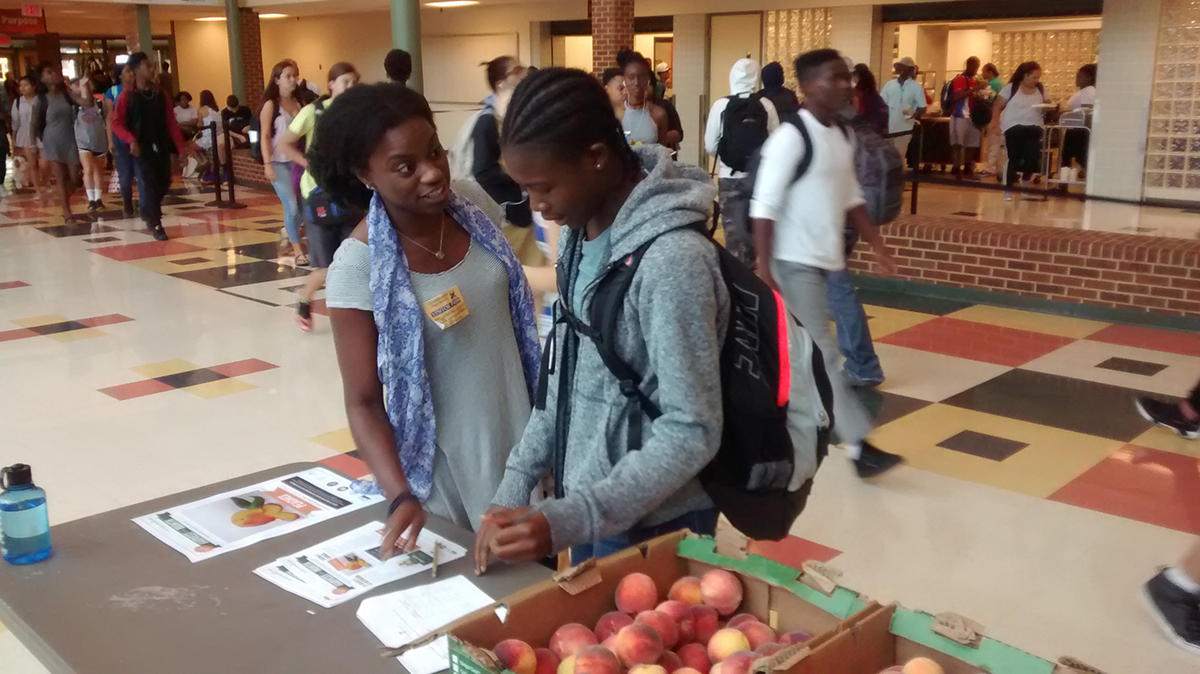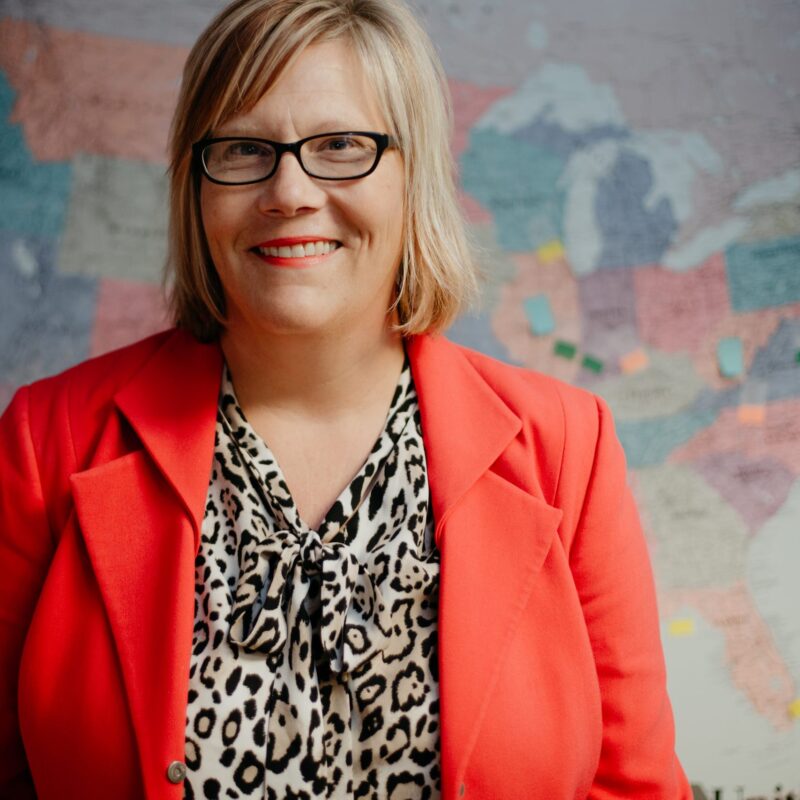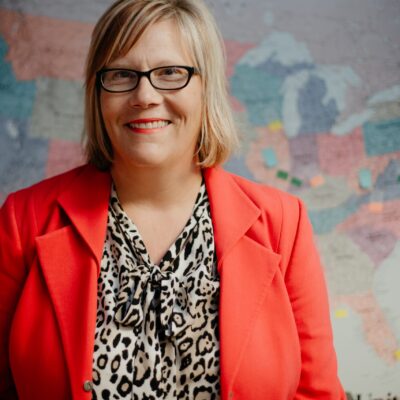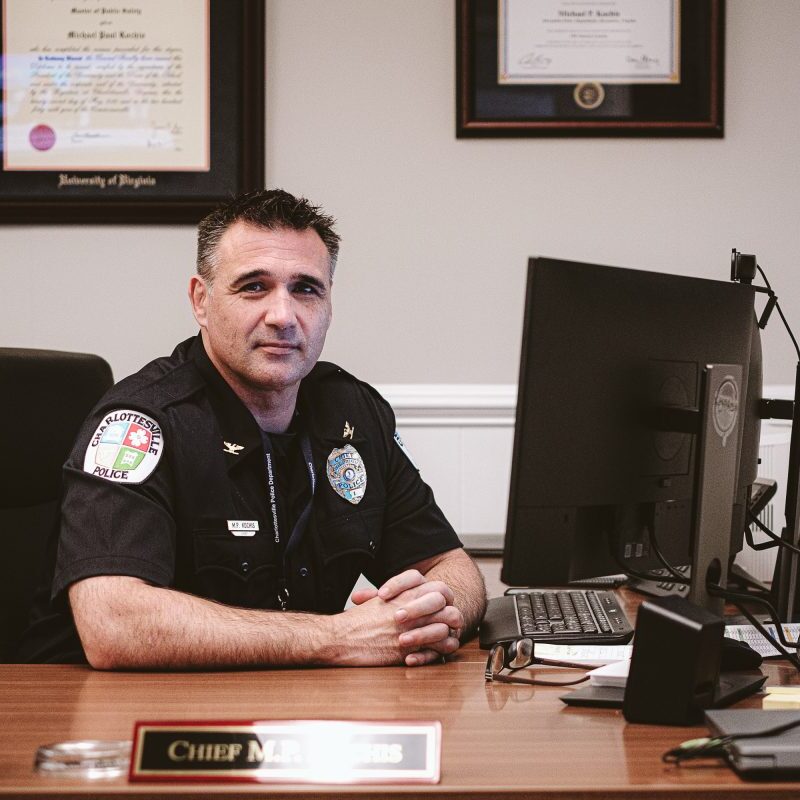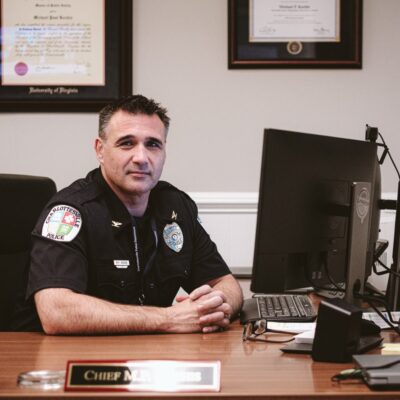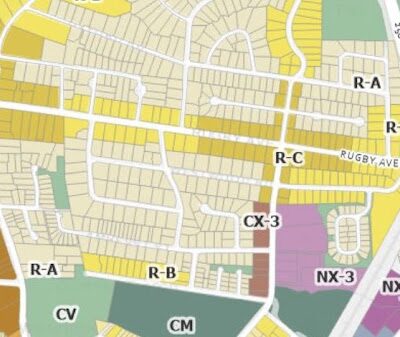Since the spring, Charlottesville City Schools has given out hundreds of free to-go breakfasts and lunches daily. But for many students, particularly those with special dietary needs, these meals have not been enough to alleviate food insecurity—now at an all-time high.
“Families are struggling to put enough nutritious fresh foods on the table…and the meals that come out of the nutrition department aren’t as wholesome as they could be,” says Shantell Bingham, program director of the Food Justice Network, a branch of Cultivate Charlottesville.
Last week, the network launched its Healthy School Foods campaign, advocating for the Charlottesville School Board and City Council to allocate an additional $125,000 per year over the next five years to the district’s nutrition department. The funding would go toward providing more fresh nutritious meals, as well as expanding the available dietary options.
“This is a campaign that’s mostly been ignited by youth and students in the schools,” Bingham says. “Our job as a greater coalition and community is to put our full force and support behind them.”
If the funding is approved, Cultivate Charlottesville, the PB&J Fund, Culinary Kitchen, and other local nonprofits plan to provide matching funds and assist with meal planning. Students have already begun trying new recipes and creating menus, says Bingham.
When this happens during school, I may skip a meal and only eat snacks that day.
Jayleana Lovely Brown, third grader at Clark Elementary
In addition to spreading awareness about the campaign on social media, the Food Justice Network invited several of its student interns to share their personal struggles and concerns with the school board and City Council during a joint budget work session on Thursday evening.
As a vegetarian, Aina Hidayat, a 10th grader at Charlottesville High School, has very few food options at school, she explained to the school board. Before the pandemic, she had to eat salads almost every day. And if she did not get to the cafeteria early, it would run out, leaving her with little else to eat.
“During the pandemic I haven’t been able to eat the school lunches,” she said. “The only vegetarian options are the peanut butter and jelly. I would really like to see more options for people like me.”
Ninth grader Hallie Good used to eat school lunch every day, but eventually decided to pack her lunch because the meals were not healthy enough. She remains concerned for the students who do not have the same privilege and resources, and have no choice but to eat whatever their school serves—or go hungry.
To manage her ulcerative colitis, Jayleana Lovely Brown, a third grader at Clark Elementary, requires certain foods. The school lunches have been inconsistent in meeting her needs, often forcing her mother to “cook up something better” with the meals delivered to their home.
“I’m lucky to have a mother who can work from home, but not every kid has this,” Brown said. “Even before the pandemic, I didn’t have my mom in school to magically change my meal to something good. When this happens during school, I may skip a meal and only eat snacks that day.”
Several school board and council members commended the students for speaking out, and agreed to further discuss the campaign with Cultivate Charlottesville, most likely during the school board’s next meeting on February 4.
“The school board and the City Council, young people of CCS, are going to work to address your issues,” said board member Leah Puryear.
